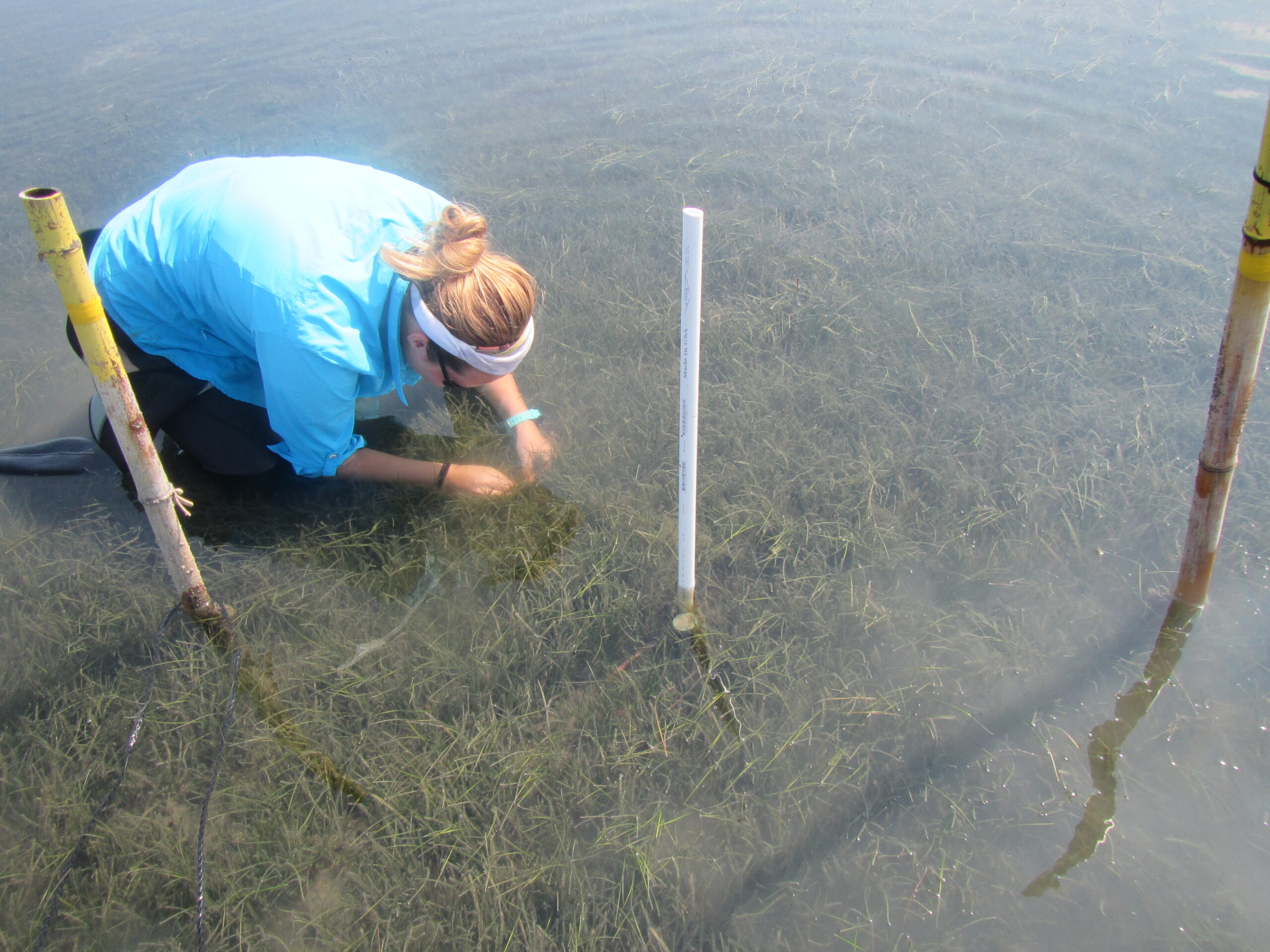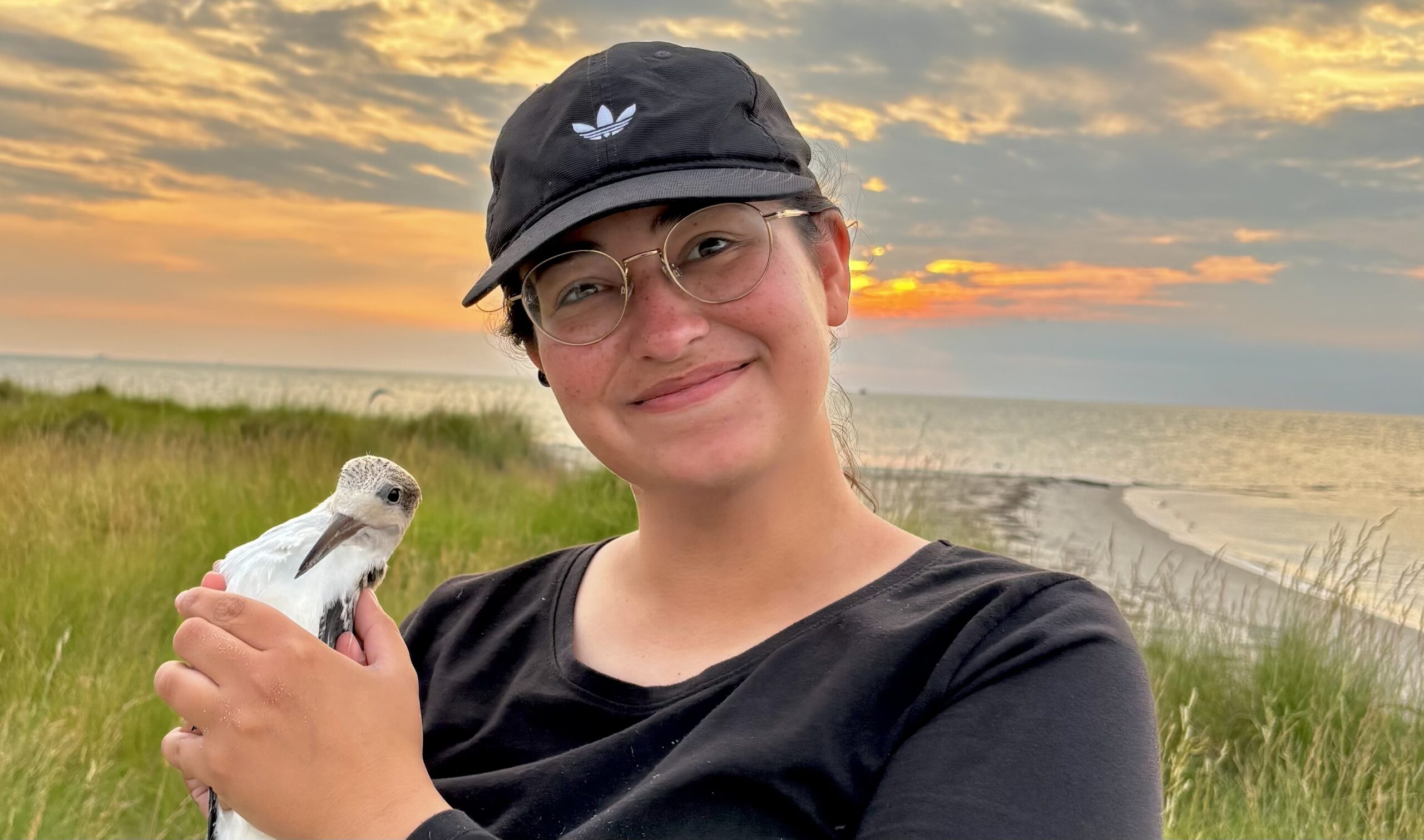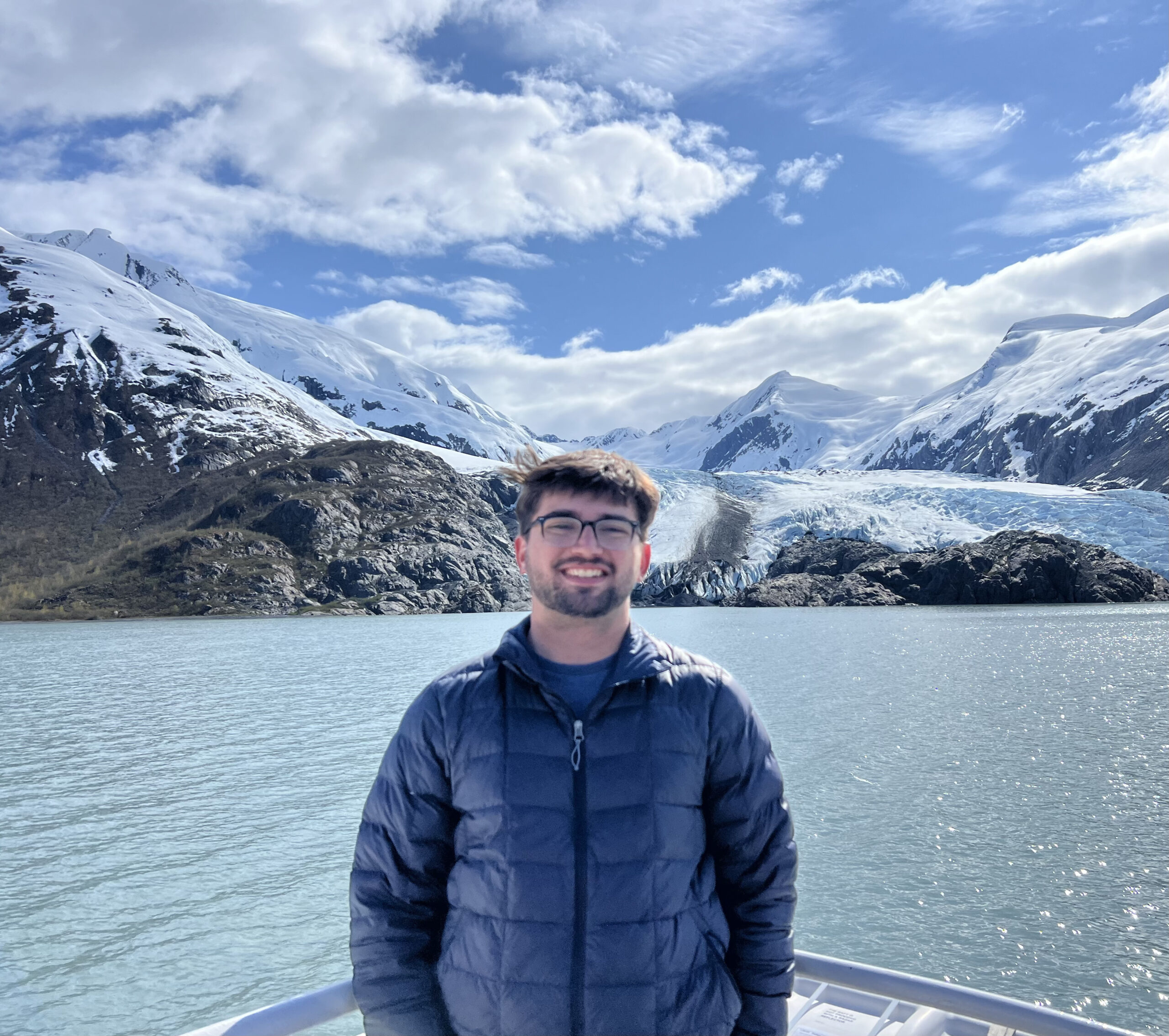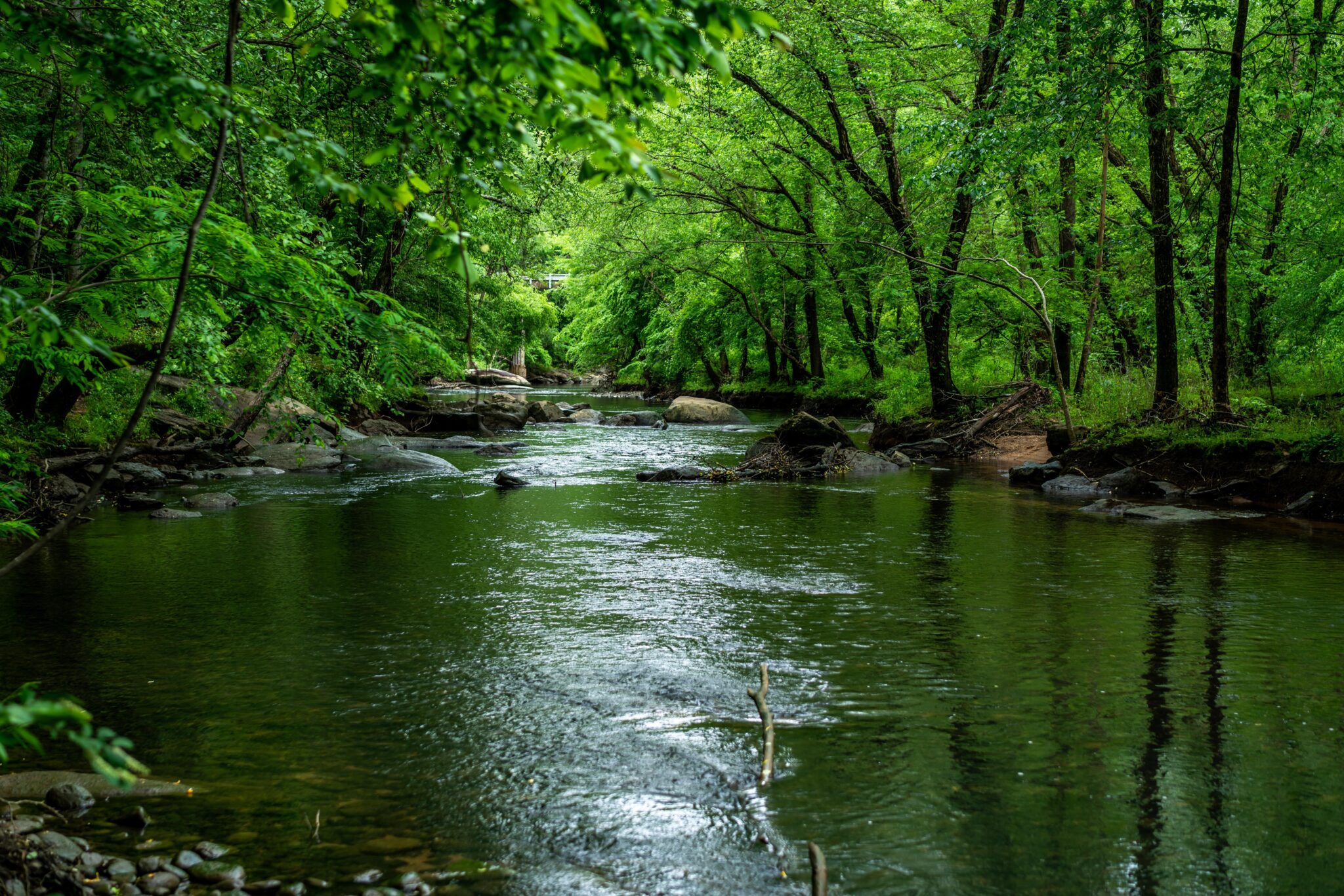New Coastal Research Fellow Studies Restoration of Seagrass Beds

FOR IMMEDIATE RELEASE
Contact:
Katie Mosher, kmosher@ncsu.edu, 919-515-9069
 Sarah Donaher will study the resilience and restoration of seagrass beds as the recipient of the 2019 North Carolina Coastal Research Fellowship. North Carolina Sea Grant and the N.C. Coastal Reserve and National Estuarine Research Reserve Program sponsor the fellowship, which supports work in the state’s reserve system.
Sarah Donaher will study the resilience and restoration of seagrass beds as the recipient of the 2019 North Carolina Coastal Research Fellowship. North Carolina Sea Grant and the N.C. Coastal Reserve and National Estuarine Research Reserve Program sponsor the fellowship, which supports work in the state’s reserve system.
“Linking research to management applications is a major thrust of this fellowship,” says Brandon Puckett, research coordinator at the Coastal Reserve.
“Understanding how ecosystems such as seagrasses respond to disturbance is a fundamental ecological question,” he explains. “By testing the potential for clams to facilitate the recovery of seagrasses from disturbance, Sarah’s research also will provide insights that can be applied in restoration and resource management contexts.”
Donaher will focus in part on the erosional effect on seagrass beds from high wave energy caused by storms and boat wakes. A marine sciences doctoral student at the University of North Carolina at Chapel Hill, she is working with Rachel Gittman, a coastal ecologist at East Carolina University. A native of Charlotte, Donaher earned a bachelor’s degree in environmental engineering from Clemson University.
“Restoration of seagrass beds can be costly and time-consuming, especially as human disturbances along the coast become more frequent and larger,” Donaher says. “With seagrasses valued at $7,700 per acre per year, we need to understand erosion and be proactive.”
During her fellowship, she will study how ecosystems become resilient through “facilitation” — the mutually beneficial interaction between species.
“Previous studies have shown that restoration is most effective when facilitation occurs,” explains Donaher, who is based at the Institute for Marine Sciences in Morehead City. “Preemptive recovery is a key factor in the sustainability of coastal ecosystems.”
Donaher will look at the interaction between clams and North Carolina’s most prolific seagrasses, Zostera marina and Halodule wrightii, to determine seagrass sensitivity to ecological and climate change.
“Clams help to improve water quality for the seagrasses by filter feeding,” she explains. “Clam transplants might be one way to help preserve our seagrass species diversity under future climate change scenarios. Increasing the density of clams in existing seagrass beds has the potential to be an effective restoration alternative.”
Donaher plans to engage undergraduates, researchers and K-12 students by sharing her research widely, including through the Scientific Research and Education Network, known as SciREN.
##
Read about last year’s Coastal Research Fellow, Christopher Moore, and his research: “Parasites: Partners in Coastal Restoration” here.
More about the Coastal Research Fellowship here.
- Categories:


